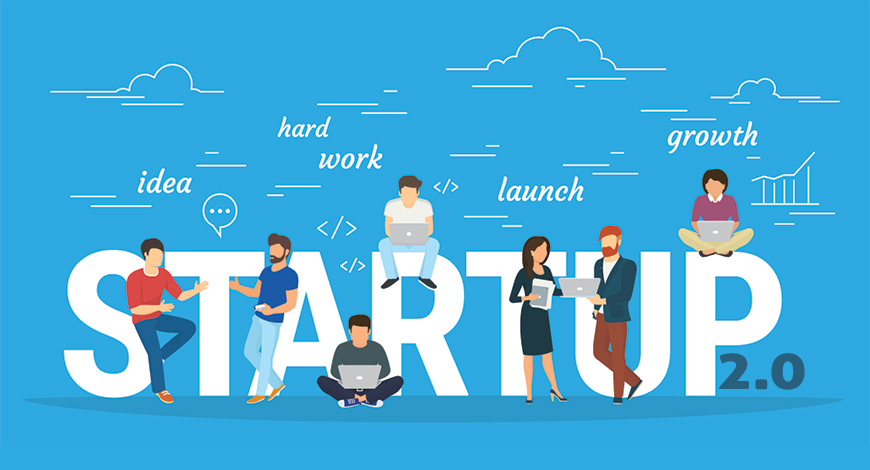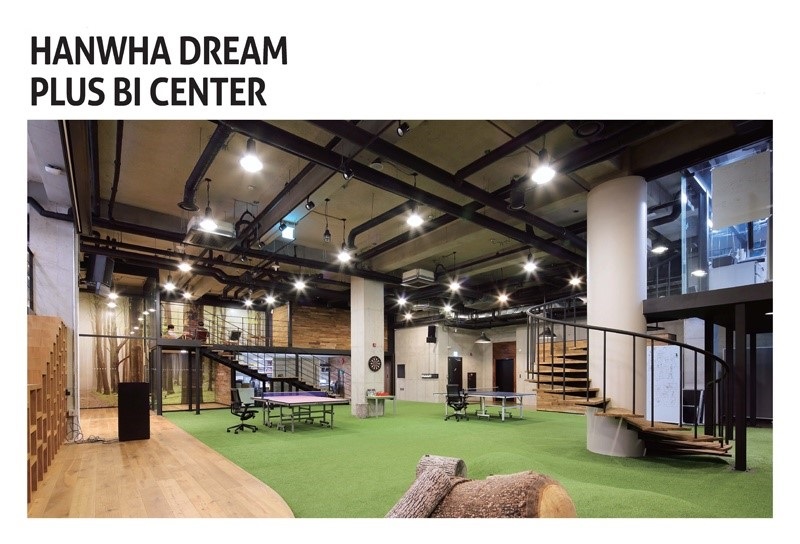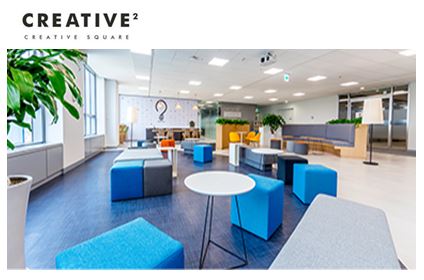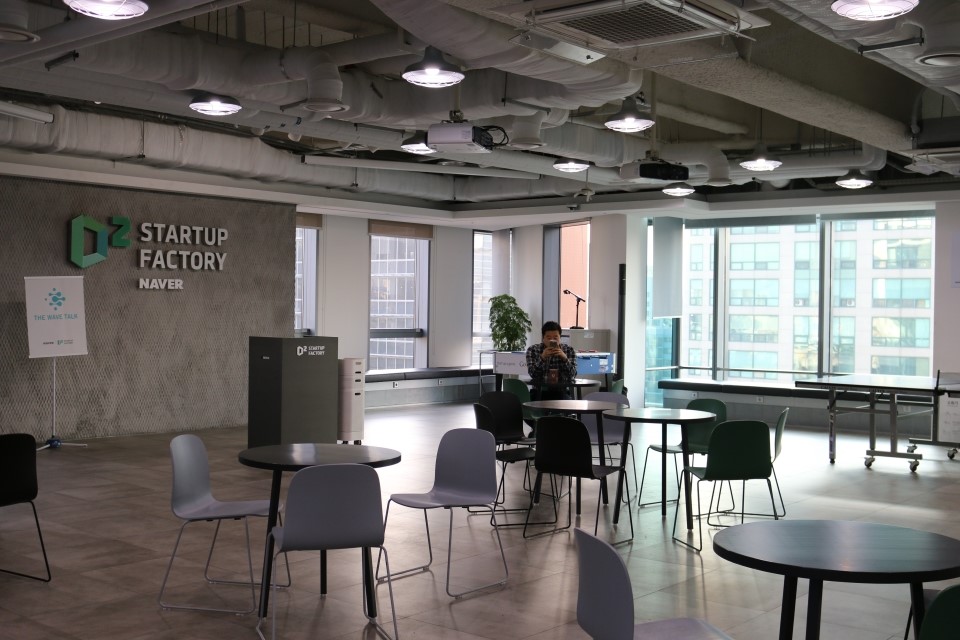 |
| ▲ Photo from BWDISRUPT. |
University students in Korea always face the same dilemma of what to do after they graduate. However, there are many other options for students who want to do something different. According to a 2016 Startup Trend Report, conducted by the Startup Alliance, 23.5% of graduates think about building their own business through this kind of program. The major motivators are the sense of accomplishment they feel from a rapid growth startup (29.4%), the sense of freedom they have and flexible decision making (27.5%) as well as the inspiration they get from a job that has value (21.6%). Moreover, the trend report shows that most news startups are business related with services, IT or even gaming.
Likewise, many of Korea’s established companies have launched nurturing startup programs or so-called Accelerating Projects providing the necessary support for those wanting to be an entrepreneur. A few notable corporate based start-up support programs are from companies like Samsung, Hanwha and Naver, some of the biggest firms in Korea. In recent years, their programs helped many fresh graduates establish their own businesses such as Coupang and Baedalui-Minjok(Delivery People) to name but a few.
 |
‘Dream Plus 63’ of Hanwha, for Start-ups Interested in Financial Technology
Hanwha Group focuses on FinTech, a combination of finance and technology, enabling people to process convenient transaction on behalf of banks. This program offers workspace at Yeouido’s 63 Building, where FinTech has its Promotion Center, the largest scale project of its kind in the world. Moreover, Dream Plus 63 shares their services with start-ups, and supports the Global Expansion Program and networking with the major financial groups.
‘Dream Plus’ of Hanwha, for Start-ups Interested in Healthcare, Beauty and Fashion
Hanwha Dream Plus in cooperation with Synpath(Healthcare), It’s Skin(Beauty), and 101 Global(Fashion) openly recruit start-ups specializing in these areas. After a recruit is selected, they take part in an accelerated training program and are offered shared facilities in their Co-work Space in Gangnam. For the startup that are chosen, there is investment in the early stage and follow-ups. Hanwha aims to make the economic environment work in conjunction with the goals of young entrepreneurs.
 |
For ICT Startups, ‘Samsung Creative Square’
‘Samsung Electronics’ launched a ‘Creative Square’ to foster startups with ideas and technologies specialized in mobility. With ‘Samsung Creative Square’, participants are offered development assistance, such as a dedicated workspace, sharing knowhow (mentored by ‘Samsung Electronics’ employees) and an opportunity to take part in a global exhibition giving start-ups a chance for worldwide exposure. Startup ‘Buzzmusiq’ was created with the support of Samsung Creative Square in their creation of the app ‘Groovo’, where people can express themselves through their own music videos. ‘Samsung Creative Square’ regularly recruits new startup teams, sometimes through month long contest exhibits.
If you have an Innovative Technique regarding Various Areas, such as AI, Mobility, Robotics, VR/AR, ‘NAVER D2 Startup Factory’
‘NAVER D2 Startup Factory’ helps startups focused on technological innovation that enable IT organizations and ecosystems get set up. The NAVER D2 Startup Factory offers office space, cloud infrastructure, organizational welfare, and networking through NAVER, designers, developers, and business experts. More notably, the Naver D2 Startup Factory is hosting a ‘Campus Tech Attack’ until December 10th, for anyone who has capabilities in technology at university or in a graduate school to apply for their startup support program. This event is helpful for university students with technical skills know-how and ideas, but no capital, to meet with advisers with experience in preparing startups.
 |
Above all these programs are in the early stages of development, so a regular checkup of the program information is required. Here are some information platforms for gathering information on trends, the Accelerator Project that preps new entrepreneurs or introduces new start-ups.
Platum (http://platum.kr/) : A Startup Story Platform, issues a monthly newsletter with stories about the start-up environment, market and consumer behavior.
STARTUP ALLIANCE by NAVER (http://startupall.kr/) : A public-private partnership network aimed at improving the start-up economy and providing more efficient networking services for its members. The Alliance is made up of private sector business like NAVER, SK Planet, and Kakao, with public sector support from Korea Internet & Security Agency and the Ministry of Science, ICT and Future Planning. They also offer a newsletter service.
Venture Square (http://www.venturesquare.net/) : A media company specialized in start-ups, publishing daily news, interviews with fresh businesses, and trend issues on their website.
K-startups (https://www.k-startup.go.kr/) : A program supported by the Ministry of Small and Medium-sized Enterprises and Startups, providing diverse information and guidelines for startups, and introducing new and innovative ways to expand businesses. They too offer a newsletter service.
The Dankook Herald (DKH) conducted an interview with Yang Sang-hwan, the Leader of NAVER D2 Startup Factory to catch a glimpse into how this program actually works and find out about some of the ideas their startup programs are trying to launch. We learned that they have been focusing on technology developers in Korea, whose talents have been overlooked. NAVER has been helping technicians and engineers develop their own ideas and hopefully carve out a market for their ideas on the world stage. Since starting up your own high-tech company is a very difficult task for a fledgling developer, NAVER offers this program as a platform to support them.
There are many entrepreneurship-related clubs in universities and they are good places for students who have wondered about their future and their ability to start up their own enterprise in technology. In the case of NAVER’s start up assistance support, aspiring entrepreneurs benefit from the experience of partners in the technology market in planning and launching their ideas in the market. They have had a lot of success in their program to date. When asked to pick one of the most memorable examples, Yang mentioned a new firm called Alpha Labs. They are a company that developed a product called smart glass which Yang thinks can compete with Google. The company founders came to Naver with an idea and little hope. They thought it would be too difficult to establish their own company because they were only a bunch of undergraduates. However, in the end, what they created was really amazing.
Yang concluded our interview by saying that entrepreneurship is a series of trials of one’s aptitude. Economically, there are many ways to jump into an industry, but it is entrepreneurship skills that enable new startups to maximize their own initiative. Through trial and error, you have an opportunity to see if the direction of the initiative is right for you. In the past, start-ups did not really need a large amount of money, as there were different sources of investment available, including government funding. However, what makes or breaks a new business is the aptitude for success of the young entrepreneurs. One or two years is enough time to see if they will succeed. These experiences can also lead to other opportunities. Nowadays the environment is better than before because with so much support, you have less risk of failure. “When I was a student back then, with less responsibility, I would try new ideas because I was adventurous and energetic,” he said.
For the many university students considering creating a startup company, there are several challenges they face such as an uncertain career and the insecure environment of starting a new company. However, instead of being burdened with planning their career path, students now have another option and it is reassuring to see that that people have been deriving a lot from these programs. In fact, students are more than ever, being encouraged to test their own abilities by taking part in these sorts of initiatives by starting their own business. The risk for start-ups are decreasing because there is now strong support and investment offered by established businesses. If you have a special idea you want to bring into the market, your own start-up will be worth the effort for the experience alone, whether you prosper or not.
박해지, Edward Ng, 윤진현 dankookherald@gmail.com

![[Campus Magnifier] Let's Surf the Library!](/news/photo/202404/12496_1765_4143.jpg) [Campus Magnifier] Let's Surf the Library!
[Campus Magnifier] Let's Surf the Library!
![[Campus Magnifier] Let's Surf the Library!](/news/thumbnail/202404/12496_1765_4143_v150.jpg)





